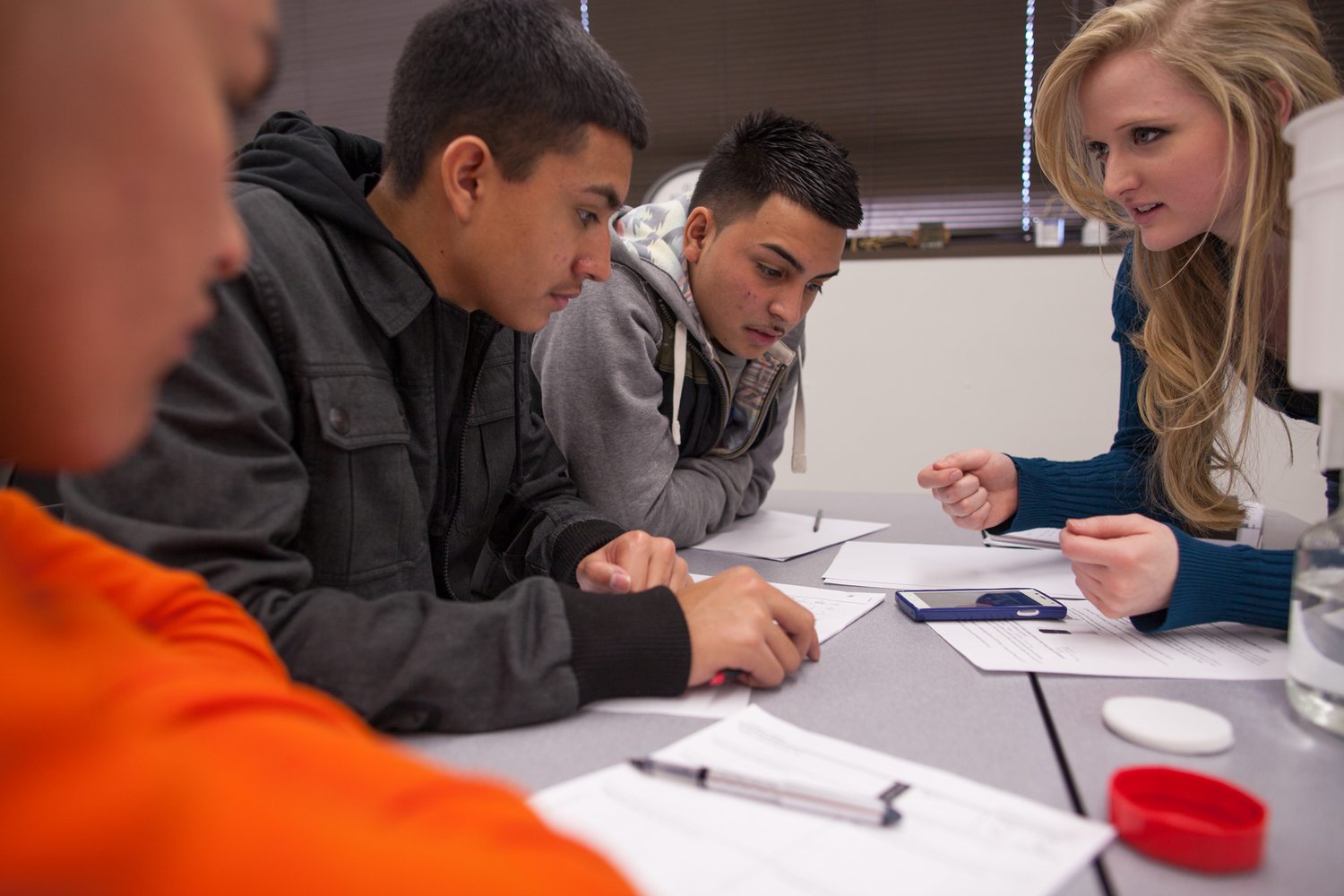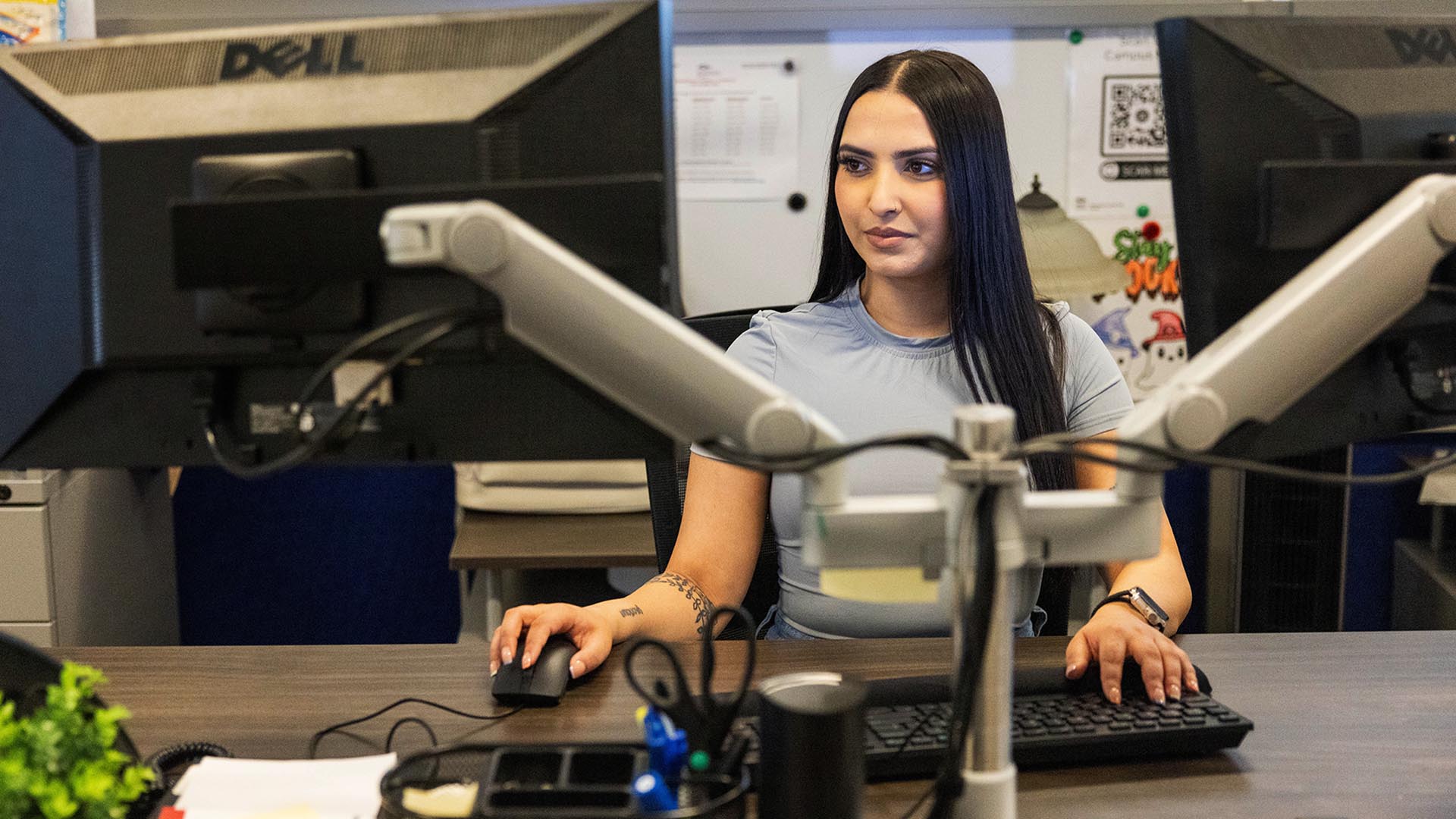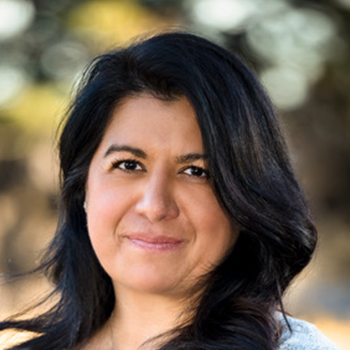A running start on the road ahead
How some enterprising high school students are building up credits for college before they even get there.

For students, the rules of the academic race are changing. But so are the opportunities for those with ambition and curiosity to get ahead.
Einstein, apparently, started puzzling over the nature of magnetic fields as a child after his father gave him a compass. Steven Spielberg, smitten by his father’s home movie camera, learned the tricks of his trade long before he grew his trademark beard. Marie Curie, the first woman to win a Nobel Prize, famously helped her older siblings with their math homework at the grand old age of 4.
The point is: The things that happen to us in our youth can have a huge impact on the adults we become and the potential we realize. And nowhere is this more important than with regard to education.
After all, how many thousands of successful people now look back with gratitude at the teacher who first sparked their interest in what would become the subject of their life’s work? This kind of stuff really counts.

Distant dream
But sadly, there are currently disparities in the levels of educational opportunity available to young people. Students from hardscrabble high schools in the less-affluent parts of town, for example, often don’t get the same exposure to inspiring people, places and experiences as those in better-off neighborhoods. Statistically, they are also much less likely to go to college, which for some can seem like a distant dream.
If the track to college is a 100-yard dash, say, then students from better schools probably get to start at around the 30-yard line. And for those stuck way back at the start line, it’s hard to get excited about their prospects.
Game-changer
Which is why a recent trend – letting students earn college credits while still in high school – has been so successful over the past few years. The idea, expressly designed to incentivize high school students to go on to higher education, also has the unbeatable benefit of being free for students.
The school-credits offer is available to all young people wherever the program is run – so for students who are already planning to go to college, it provides an opportunity to pick up some useful credits early.
But the biggest impact is felt by those students who were daunted by the prospect and potential cost of a university education. For them, this could be a real game-changer. Because suddenly, they are also up there at the 30-yard line and right in the race again.
Reaching out
A growing number of universities in metro Denver have latched on to the idea of concurrent- enrollment – taking college courses while still in high school. (The uptake has been mostly from community colleges.) But it shouldn’t come as a surprise to see Metropolitan State University of Denver right in the thick of the action. More than 30 percent of Colorado 11th- and 12th-graders participated in some type of dual-enrollment program during the 2015-16 school year.
Over the years, the University has gained a solid reputation for representing an abundantly diverse population and providing an academic home for more first-generation students than any other college in the state. “Helping the little guy” is hard-wired into the institution’s DNA.
So the program really is a perfect fit. By reaching out to help potential future students (some of whom might not make it to college otherwise), it feeds into the very core of MSU Denver’s ethos – that everyone deserves the opportunity of a good university education.
Business sense
More than 300 students at MSU Denver already benefit from a range of school concurrent credits – but even bigger things are on the horizon.
This fall, the University’s College of Business will launch a major new program that will empower high school students to accumulate up to seven college credits – free of charge – that they can later cash in. (MSU Denver is working in partnership with an organization called MBA Research to provide this extra help.)
As program proponent and faculty member in the College of Business, Clay Daughtrey is excited by the new plans. “We got involved to help all those enterprising high school students – and there are many – who have already tailored their education towards a business future,” he says.
“These young people are showing real foresight and initiative, so we want to give them an initial boost right now. And hopefully provide a good landing spot for them in the future.”
Earlier this year, Daughtrey represented MSU Denver at a special business teachers event, where almost 50 local college professors and high school teachers gathered to work on aligning their respective curricula to better serve the new school-credits system. As Daughtrey puts it: “This work is already happening, right now. This is concrete stuff.”

Useful credits
The school-credits program at MSU Denver also has one extra cherry on top – it is offering credits in specialist academic areas that are not provided by any other institutions.
For example, the University recently moved to ensure that literally “high-minded” students from Cherry Creek School District and other partner schools would have an opportunity to gain aviation credits. Before this happened, young fly-happy students wanting to build credits had been left hanging.
And while the Colorado Restaurant Association already has a program for students interested in following a food-loving career, there weren’t any available credits until MSU Denver stepped in and certified the association’s work. Now, all that hard time students spend in the kitchen goes toward cooking up a promising future.
Common good
Despite their many benefits, there were some initial reservations about concurrent credits from high schools and universities. That’s because there is a cost to the schools to provide the credits, and universities see high school students arriving with (free) credits for which they otherwise could have charged.
But there has been a general recognition that the program works for the common good and that several current university students might not have made it to college without such targeted support.
The basic idea is simple: Make a small initial investment now, in the knowledge it will empower more students to educate themselves to a position where they will be able to make a bigger contribution to society in the future. Everyone benefits.
Head start
But a cynical reader might ask, How useful is all this really? How much of a difference are seven measly credits, say, going to make in the grand scheme of things? The answer: quite a lot, actually. Higher education can be tough, and having the psychological and actual benefit of college credits in the bank on your first day is no small thing.
More than that, like Spielberg with his home movies or Marie Curie and her early mental feats, earning college credits while still in high school demonstrates to students that they are made of the right stuff. Before they even enter a university building, they will have already conquered the first hump of the academic mountain they have to climb.
Going back to the analogy of the 100-yard dash, they’re not only on the right track – they literally have a head start.







